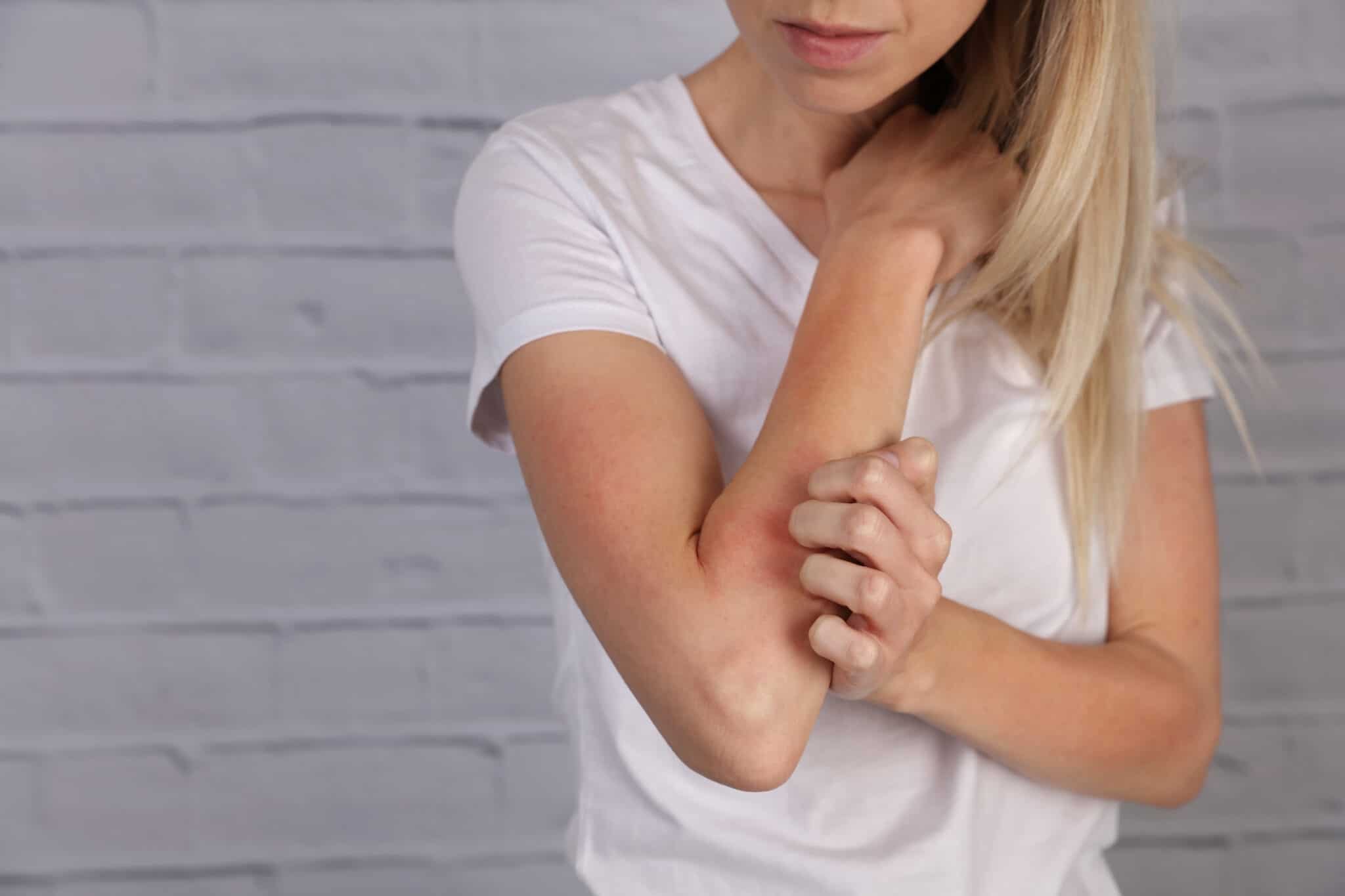Treating Skin Allergies. Skin allergies can cause discomfort and affect your overall health if the symptoms are not addressed. It’s important to understand the different types of skin allergies and see an allergy specialist to relieve your symptoms.
Skin Allergies Such As Contact Dermatitis- What Is It?
Throughout the coronavirus pandemic, our use of hand sanitizers and face masks has become a part of our everyday lives. However, sometimes using these items or certain lotions and cosmetic creams can cause a skin reaction called contact dermatitis.
Contact dermatitis is a skin condition that causes a red, itchy rash on the area that has come in contact with the allergen. Signs and symptoms of contact dermatitis include:
- A red rash
- Itching, which may be severe
- Dry, cracked, scaly skin
- Bumps and blisters, sometimes with oozing and crusting
- Swelling, burning, or tenderness
Although skin allergies caused by contact dermatitis is not life-threatening, it can be extremely uncomfortable for a person suffering from the condition. After an allergist has identified the cause of the reaction, avoidance of the allergen is key to reducing symptoms. Topical creams and other medications may also be used in combination with the release of the allergen to relieve the skin allergy.
Skin Allergies Such As Atopic Dermatitis (Eczema)- What Is It?
Atopic dermatitis, also known as eczema, is a skin allergy that typically begins in early childhood and is not caused by external allergens on the skin. Eczema is caused by a gene variation that affects the skin’s ability to protect from infection from outside bacteria. Symptoms of atopic dermatitis include:
- Dry skin
- Itching, which may be severe, especially at night
- Red to brownish-gray patches, especially on the hands, feet, ankles, wrists, neck, upper chest, eyelids, inside the bend of the elbows and knees, and in infants, the face and scalp
- Small, raised bumps, which may leak fluid and crust over when scratched
- Thickened, cracked, scaly skin
- Raw, sensitive, swollen skin from scratching
Although there is no cure for atopic dermatitis (eczema), symptoms can be managed with proper treatment by an allergist. Treatment can include avoiding any triggering allergens to the condition but often must be combined with internal or external medications.
Skin Allergies and Their Reactions- Urticaria and Angioedema
Urticaria (hives or welts) are red, itchy, raised areas of the skin that appear on any part of the body. They may occur with angioedema or swelling of the deeper layers of the skin. When these occur in less than six weeks, they can result from viral infections, drugs, food, stinging insects, or contact with environmental allergies. When they repeatedly occur for more than six to 6 weeks, they can be related to physical triggers (such as heat, cold, pressure, or sunlight), autoimmune problems (such as thyroid disorder), or sometimes to unidentifiable causes.
Angioedema that does not occur with urticaria is usually non-allergic. It can be due to medication use (most commonly involved are the angiotensin-converting-enzyme-inhibitor medications for blood pressure), or to a familial condition called hereditary angioedema, or may be acquired secondary to underlying blood disorders.
Common treatments include topical creams and antihistamines, but more advanced treatments, such as immunosuppressive drugs, may be recommended.
Treatment for Skin Allergies
The board-certified allergists at McGovern Allergy & Asthma Clinic can identify the cause of your skin allergies and provide a customized treatment plan to relieve your symptoms for healthy, beautiful skin!
Call 713-661-1444 to schedule an appointment, or click the link to request one online. https://mcgovernallergy.com/request-an-appointment-online/

